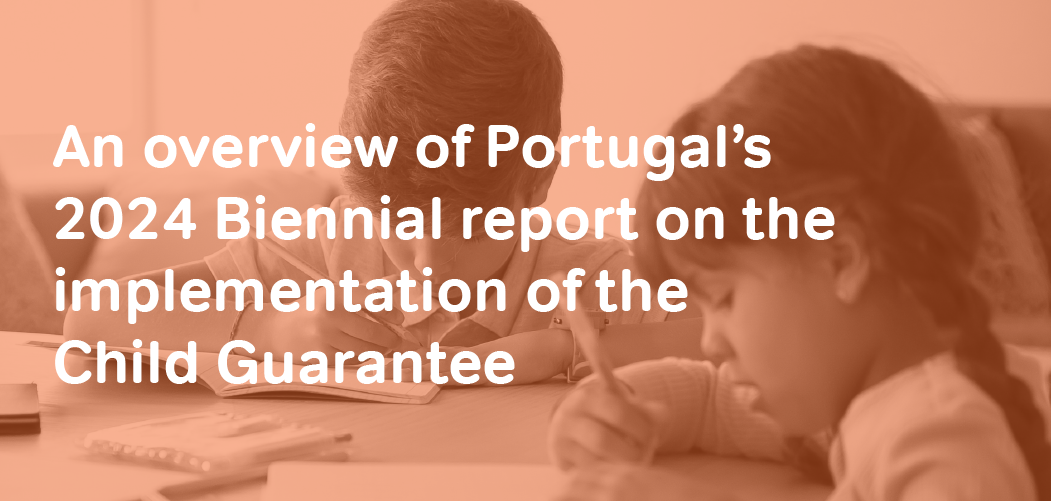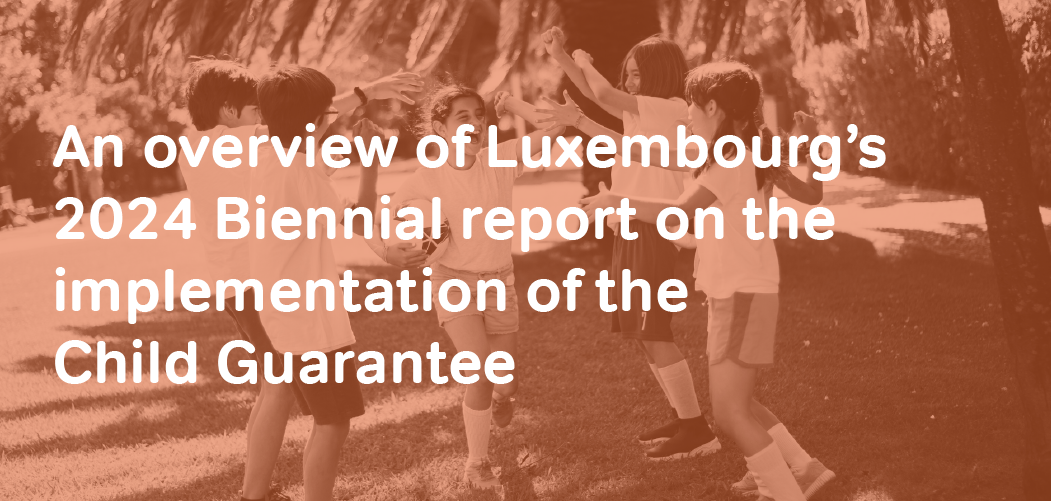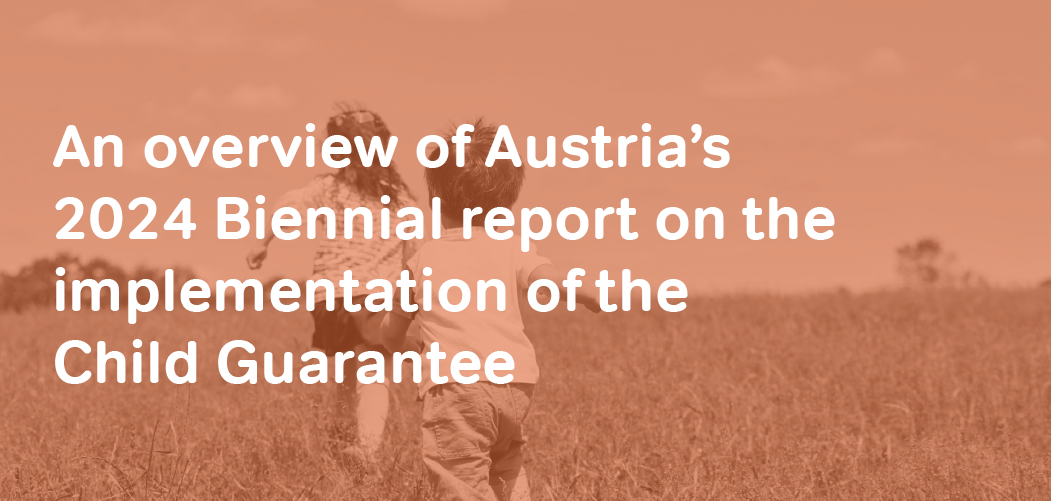Portugal's 2024 Biennial report on the implementation of the Child Guarantee – an overview
Three years after the adoption of the European Child Guarantee, EU Member States are releasing the first report on its implementation. The reports offer an overview of the context, target groups, and services established to execute the European Child Guarantee’s National Action Plans. Additionally, they include sections covering indicators, financing details, and insights and conclusions gleaned from the implementation process.
The Portuguese Government submitted its 2024 Biennial report on the implementation of the Child Guarantee in March 2024.
The report focuses on:
- Early childhood education and care: Gradual extension of free access to ECEC for all children aged 0-3. 30% of the places allocated for ECEC are allocated to those receiving the Child Guarantee Supplement or family benefits.
- Education and school-based activities: Development of the Escola+ Plan and the Strategic School Sports Programme (2021-2025). The School Social Assistance (ASE) supports economically disadvantaged students and the Priority Intervention Educational Territories (TEIP) Programme focuses on improving education for vulnerable communities.
- Healthcare: Benefits for children and youth facing special vulnerabilities. These include reduced payments for outpatient mental health care, and family contribution exemptions for inpatient services based on income, in line with the National Programme for Child and Youth Health.
- Healthy meal each school day: The School Distribution Scheme provides guidelines for supplying school food, including the School Meal Planning and Assessment System. All school lunches are co-financed by the Ministry of Education, regardless of the student’s socio-economic background.
- Adequate housing: Structural reform to ensure universal access to decent housing. Programs like 1 Direito focus on vulnerable populations, while the Porta de Entrada and National Reserve Pool provide urgent and temporary accommodation, especially for disaster victims and refugees.
- Alternative care: Programmes aimed at limiting the use of residential care services and a Ministerial Order reforms reforming residential facilities.
- Support to vulnerable households: The Child Guarantee was introduced in the 2022 State Budget to support families with children. It includes three key measures: a new social benefit, increased family benefits for low-income families, and the Child Guarantee Supplement (financial).
Check out the rest of the 2024 Biennial reports on the implementation of the Child Guarantee!
Eurochild and its members will continue to call on Member States to release their biennial reports and work to ensure the Child Guarantee National Action Plans help end child poverty.
This summary provides key highlights from the Biennial report on the Child Guarantee implementation in Portugal published in March 2024. It is not exhaustive or evaluative.





